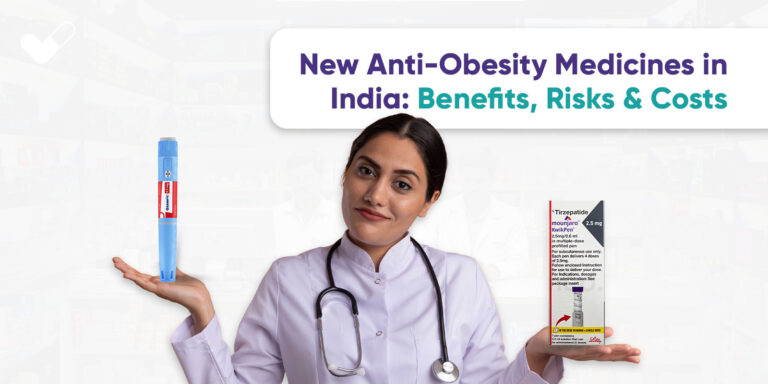
Well, as a woman, you’re likely bombarded with advice the moment you announce your pregnancy. From what to eat to where not to go, the guidelines are endless. And when it comes to travel, the unsolicited tips only multiply. But really, is it safe to travel during pregnancy?
In this blog, we’ll explore the ins and outs of train travel, air travel, and general travel during pregnancy. Also, we’ll discuss which months are safest for you to hit the roads.
Let’s get started!
Is It Safe to Travel During Pregnancy?
Yes. Travelling during pregnancy is safe, mainly in your second trimester, from weeks 14 to 28. That’s when you feel the most comfortable and excited. Plus, the risks of early pregnancy complications are lower during this time. However, once you enter the third trimester of pregnancy, around week 25, it’s better to avoid travelling.
That said, there are a few important things to know before travelling during pregnancy. Without further ado, let’s look into it.
Things To Know Before Travelling During Pregnancy
Here are some essential tips on travelling during pregnancy that you should know before you hit the road:
1. Choose the Right Mode of Transportation
When it comes to travelling during pregnancy, choosing the right mode of transportation is crucial. Air travel during pregnancy is generally safe until 36 weeks, but it’s always best to check with the airline’s policy beforehand. If you’re travelling by car, make sure to wear a seatbelt and take frequent breaks to stretch your legs. Bus and train travel during pregnancy is also a safe option, but make sure to reserve a seat in advance for a comfortable journey.
2. Choose Your Destination Wisely
When planning your trip, it’s important to do some homework on your destination. Not all places have good hospitals, clinics or medical facilities, which could be a big deal if you need help quickly. Also, some areas or cities might have a risk of infections that could affect you or your baby. Therefore, always check with your doctor before you book anything to ensure you’re choosing a safe spot.
3. Check Your Travel Insurance
Pregnancy-related issues, such as premature labour or emergency caesarean sections, can occur unexpectedly during travel. Therefore, it’s crucial to check in with your health insurance company and understand the kind of coverage you have at your destination. For instance, if you’re travelling internationally or to other cities, you may need to purchase additional insurance to ensure that you’re fully protected while abroad.
Now, let’s take you through the do’s and don’ts to ensure a smooth pregnancy travel experience.
Travelling During Pregnancy: Do’s And Don’ts
Here are some vital do’s and don’ts to keep in mind for a safe and enjoyable journey.
Do’s:
1. Stay Hydrated
Maintaining adequate hydration is essential during pregnancy, mainly when undertaking travel. Ensure you stay well-hydrated by consuming ample water and avoiding caffeine and alcohol. Dehydration can lead to fatigue and headaches, so keep a water bottle handy throughout your journey.
2. Take Breaks and Stretch
Prolonged sitting can lead to discomfort and increase the risk of blood clots. To counter this, take regular breaks between long periods of sitting to stretch your legs and move around.
3. Wear Comfortable Clothes
Comfort is a priority while travelling, especially during pregnancy. Wear loose, comfortable clothes that let you move around easily. Choose footwear that is soft and easy to walk in to avoid pain or discomfort during your trip.
Don’ts:
1. Avoid long flights
Avoid flights that are longer than 4 hours, especially during the third trimester. Sitting for prolonged periods can elevate the risk of thrombosis (blood clots). However, if a long-haul flight is necessary due to circumstances, then consult your doctor and consider wearing compression stockings.
2. Avoid bumpy rides
Avoid bumpy rides, such as roller coasters or rough off-road rides. These can increase the risk of abdominal trauma (placental abruption) and premature labour.
3. Avoid High Altitudes
Avoid travelling to high altitudes as it can cause altitude sickness and affect your baby’s health causing foetal heart dysfunction. This may be caused by a lack of oxygen at high altitudes.
4. Avoid heavy lifting
Lifting heavy objects can strain your back and stomach, and might even cause early labor or miscarriage. So, avoid carrying those heavy items and seek help from others when needed.
Conclusion
Travelling during pregnancy often involves careful planning to keep yourself and your little one safe and healthy while they’re still inside your womb. Similarly, planning for your baby’s long-term health when they enter this world is just as crucial.
One excellent way to do this is by enrolling for stem cell preservation program.
Banking your newborn’s stem cells with LifeCell at birth can protect your baby and the entire family from over 80 medical conditions with additional benefits like:
- Access to 75,000+ qualified units for community use
- >97% chance of finding an Indian-origin stem cell match
- Financial assistance of up to 20 lakhs
- Unlimited FREE sample retrievals
For more information on LifeCell Stem Cell Banking Program and how your entire family can benefit from it , call 1800-266-5533 or visit www.lifecell.in.
FAQs
Q1. Is Air Travel Safe During Pregnancy?
Yes, air travel is generally safe during pregnancy up to 36 weeks. However, it is advisable to limit long-haul flights to under 4 hours during pregnancy.
Q2. What Trimester Is Considered The Safest For Travel During Pregnancy?
The second trimester (around 27 weeks) is considered safest for travel during pregnancy. However, it is always advisable to consult your doctor before making any travel plans.
Q3. Do I Need A Medical Certificate To Travel While Pregnant?
No, it is not mandatory to carry a doctor’s note while travelling during pregnancy. However, it’s always best to carry your doctor’s contact information and maternity medical records with you in case of any medical emergency.
Write and Win: Participate in Creative writing Contest & International Essay Contest and win fabulous prizes.


